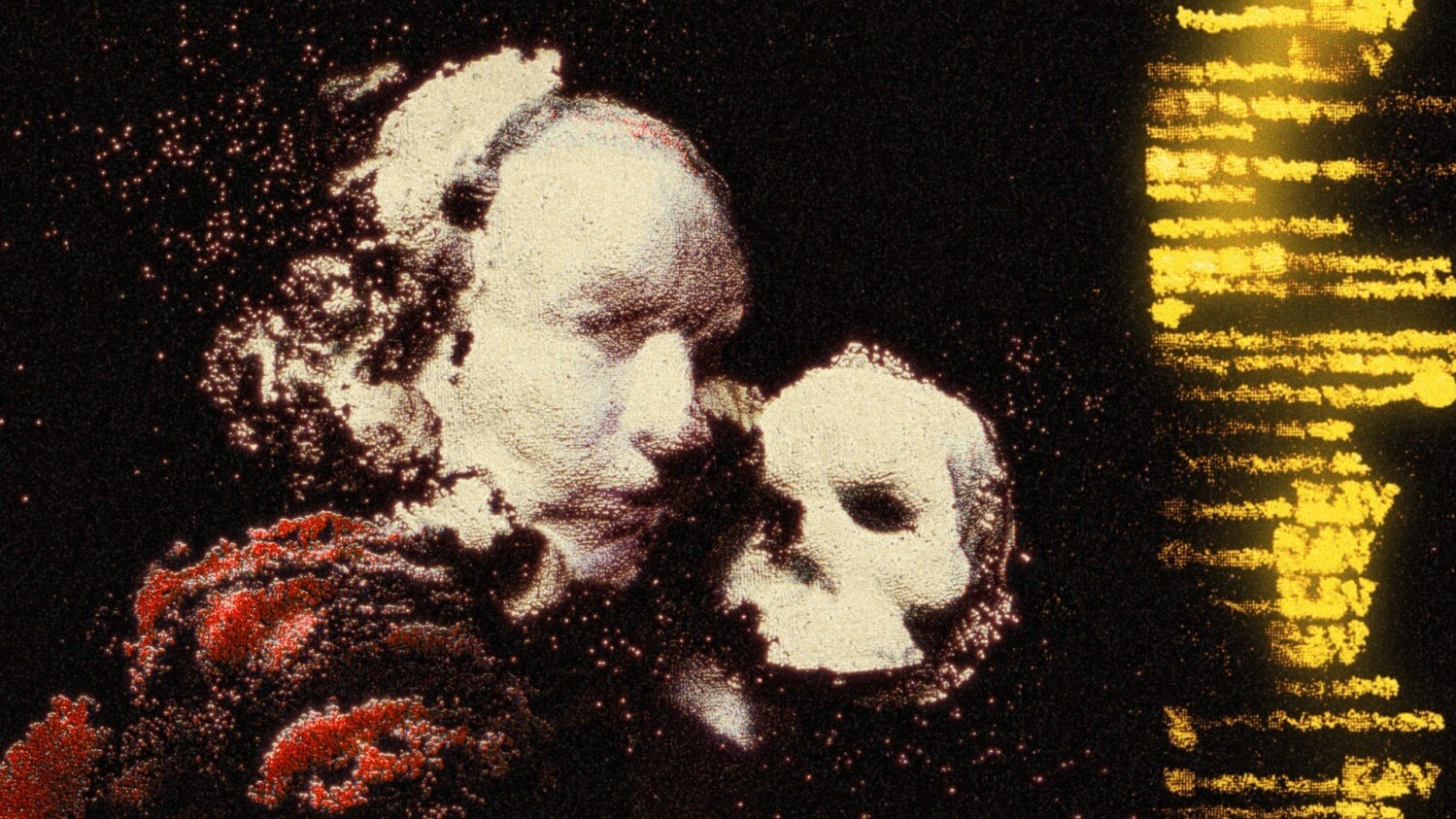Three Economic Entities
What does a drone pilot operating on a peacekeeping mission in an unnamed country see on his monitor? Can he still recognize human beings, animals or landscapes in the crumbling shapes? These questions were addressed by the creative duo Andran Abramjan and Jan Hofman in their film Medical Field Guide or Rules of engagement with native e-girls. Their film, screened at last year's Jihlava Documentary Film Festival and then at the IFF Rotterdam, was inspired by Tomáš Čada's poem Three Economic Entities.
He says
he used to be in the Foreign Legion,
that they were assigned a clear task
and that I certainly cannot
imagine any of it at all.
That it was somewhere in:
Nigeria
Congo,
Eritrea,
Gabon
or what the dickens
He really says what the dickens,
while vaguely smiling.
He says
he had to guard a warehouse.
Guard a munitions warehouse.
Guard a warehouse
and care about nothing else.
No interference,
that was the order.
And the words:
No interference,
he repeats with a distinct emphasis,
as if imitating what he'd been told.
And so,
he repeats,
he guarded the warehouse.
He guarded it by day,
and by night,
in hideous heat
and in even more hideous rains,
that desperately failed to come.
He watched it with:
expectation,
boredom,
with hatred,
with resignation,
with hope,
warily,
and with eyes blinded by fatigue.
He guarded it during regular gun disassembly and gun assembly, he says,
and his hands indicate the practiced movements.
Even here, in the pub, he gives a mechanical impression.
It was all mechanical, he says
and, as if searching for a more appropriate expression, he says:
Automatic.
And the word:
Automatic
he repeats with a distinct emphasis
as if imitating what he'd heard.
He guarded the warehouse, he says,
when women with children
from a nearby village were leaving with their washing
and returning with water,
when men from the same village
were leaving for the market
and returning from the hunt.
He guarded the warehouse, he says,
even when it was unbearable,
when he breached all other kinds of:
orders
rules
regulations.
When he found himself a woman in the village
because otherwise it could not be borne.
Even then he guarded the warehouse.
He guarded the warehouse
when one day the men went hunting
and did not manage to come back from the market.
He says,
and sips his lemonade
because, as he told me,
he does not like alcohol.
He says,
that from the nearby forest
shadows with machetes emerged.
That the shadows were men
and the men were shadows.
That somewhere in:
Nigeria,
Congo,
Eritrea,
Gabon
or what the dickens.
He really says what the dickens,
vaguely smiling.
That over there, other rules apply,
that there is an inconceivable way of thinking,
that Europe is utterly elsewhere,
but that it has its:
reasons,
order,
logic.
That there in that:
Nigeria,
Congo,
Eritrea,
Gabon
or what the dickens
that it simply goes like that there,
it's a natural cycle,
that nature is incredibly cruel.
He says,
he talks incessantly.
He says
that men were shadows
and shadows were men,
that they waited, sharpening their knives, until the men from the nearby village left.
He says
that their sharpening was meticulous.
And he repeats the word:
Meticulous
with a distinct emphasis,
as if savouring its power.
He says
that above all, he needed to guard the warehouse.
Guard the munitions warehouse.
Guard the warehouse
and care about nothing else.
That the shadow-men, painted with hatred, moved through the grass,
that several of them attacked the munitions warehouse,
that his weapon worked,
and his hands indicate the practiced movements.
Even here, in the pub, he gives a mechanical impression.
It was all mechanical, he says
and, as if searching for a more appropriate expression, he says:
Automatic.
The word:
Automatic
he repeats with a distinct emphasis,
as if imitating what he'd heard.
That the shadow-men vanished like vapour when the bullets hit them,
that they soon realized that the warehouse was unconquerable for them
and that with determination they flowed into the village.
That the women and children were not out with their washing or for water,
that they were sleeping in their huts,
that the men had gone hunting,
that they had not managed to come back from the market.
And that there was a massacre.
That shadows became men,
that they sharpened well
and acted bluntly.
He says
that he saw a man who pulled a pregnant woman and her two-year child directly in front of him.
He says
he had to guard the warehouse.
Guard the munitions warehouse.
Guard the warehouse
and not care about anything else.
He says
that he saw a man behead the child with one stroke.
He says,
that he saw a man cut the woman's womb with two strokes,
saw the woman’s unborn life spill out.
He says
he saw a man cut off the woman's head
with three strokes,
one of which failed.
He says,
it was somewhere in:
Nigeria,
Congo,
Eritrea,
Gabon
or what the dickens.
He really says what the dickens,
sadly smiling.
That other rules apply there,
that there is an inconceivable way of thinking,
that Europe is utterly elsewhere,
but that it has its:
reasons,
order,
logic.
He says,
six strokes.
He says:
fetus
child
mother.
He says:
Three economic entities.
And the words:
Economic entities
he repeats with a distinct emphasis,
as if he wanted to believe them himself.
He says
that he was in the Foreign Legion,
that they were assigned a clear task
and that I certainly cannot
imagine any of it at all.
---
Translated by Tomáš Míka a Bernie Higgins
The poem was published in the collection Vše o lásce published by JT'S in 2019. The collection can be purchased here.


